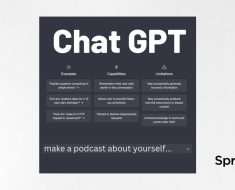The world has changed, but if there’s one constant thing, it’s writer’s block. Thankfully, in 2024, Grammarly isn’t the only game in town for writers seeking assistance. The landscape of writing tools has expanded, and quite dramatically too if I may add. New players have entered the field, each with unique strengths.
This article explores the top Grammarly alternatives available today. We’ll look at options for every type of writer, from novelists to bloggers to students.
Want in-depth style analysis? There’s a tool for that. Need help with readability? We’ve got you covered. Looking for AI-powered suggestions? You’ll find those too. No matter the use case, here are the best Grammarly alternatives in 2024.
1. ProWritingAid
First up, we have the always dependable ProWritingAid. It offers in-depth reports on style, readability, and overused words — making it a staple among authors and long-form content creators. The software can also be used with platforms such as Microsoft Word, Google Docs, and Scrivener.


The Things We Like:
- Rich in features
- Detailed reports and analytics on writing style
- Excellent for long-form content and book writing
- Affordable lifetime subscription option for only $399.99
- Extensive educational resources for writers
- Uses AI to make your input read better
The Things We Don’t Like:
- Can be overwhelming for casual users
- In my experience, the desktop app can be slow with large documents
- Less suitable for quick, short-form writing tasks
2. Reverso
While known for being a language app, Reverso also features a free grammar checker for writing assistance. And get this: you can use it for many different languages. Its grammar and spell-checking features are also enhanced by its vast database of real-world language usage, allowing it to provide context-specific suggestions.


The Things We Like:
- Excellent for multilingual users and translations
- Provides context-based examples for better understanding
- Free version is already feature-rich
- Useful for learning idiomatic expressions in different languages
The Things We Don’t Like:
- Grammar checking not as comprehensive as some competitors
- Premium features can be pricey for individual users
- Not suitable for academic or professional writing
3. Linguix
If you’re looking for other multilingual options, Linguix offers real-time grammar and style suggestions, along with a paraphrasing tool to help diversify your language. Since its last update, Linguix now also has a GPT-4 writing assistant for individuals and teams.


The Things We Like:
- AI-powered personalized writing suggestions
- Comprehensive browser extension for online writing
- Includes a plagiarism checker in higher-tier plans
- Offers prompt templates for various types of writing
- Uses GPT-4 for better quality
- Offers discounts for students
The Things We Don’t Like:
- Newer platform with a smaller user base compared to established alternatives
- Some advanced features only available in premium plans
4. Slick Write
Slick Write is a free, web-based writing editor that provides instant feedback on your writing and highlights issues related to grammar, style, and potential clarity improvements. This tool is particularly useful for writers looking for something that’s no-frills-no-fuss and just gets the job done.


The Things We Like:
- Completely free to use
- No account required for basic features
- Offers detailed statistical analysis of writing
- Clean, distraction-free interface
The Things We Don’t Like:
- Limited integration with other writing platforms
- Very barebones and lacks some advanced features found in paid alternatives
5. Hemingway App
Hemingway is one of those platforms that’s been around so long that it became a staple in the writing process. The biggest difference is that, instead of just fixing your writing, what Hemingway solves is how to make your writing better. It highlights complex sentences, passive voice, and unnecessary adverbs so you could make adjustments — making it a great writing companion for bloggers, students, and even traditional writers.


The Things We Like:
- Focuses on improving readability and clarity
- Simple, intuitive interface with color-coded suggestions
- Provides a readability score for your text
- Available as both a web app and desktop application
- Completely free
The Things We Don’t Like:
- Limited grammar checking compared to more comprehensive tools
- May oversimplify some writing styles
- No direct integration with word processors or other writing platforms
6. WordTune
WordTune goes beyond traditional grammar checking by offering multiple rewrite suggestions for each sentence. At its core, WordTune isn’t really a straightforward grammar checker like Grammarly, but a generative AI that’s well-equipped to make your writing better, punchier, and more memorable.


The Things We Like:
- Beautiful and functional interface
- AI-powered rewriting suggestions for entire sentences
- Helps improve writing style and vocabulary
- Integrates with various platforms including Google Docs and Microsoft Word
The Things We Don’t Like:
- Free version has limited features and word count
- May sometimes alter the intended meaning of sentences
- Can be tempting to over-rely on suggestions, potentially diluting personal style
7. Ginger
Now let’s go back to the basics. Ginger offers a complete suite of writing tools that includes grammar checking, sentence rephrasing, translation, and even a personal trainer for English learners — everything you’ll get in Grammarly Premium.


The Things We Like:
- Accurate grammar and spell checking with contextual corrections
- Includes translation and language learning features
- Offers a text reader for proofreading by ear
- Available on multiple platforms including mobile devices
The Things We Don’t Like:
- User interface can be less intuitive than some competitors
- Some users report occasional slow performance
- Premium version required for full feature access
8. Scribens
Simple. That’s the word I’d use to describe Scribens. Like Hemingway, Scribens doesn’t have many features other than its grammar checker and paraphrasing tool. However, it more than makes up what it lacks in features in accuracy and fluency.


The Things We Like:
- User-friendly interface
- Completely free
The Things We Don’t Like:
- Lacks the features of other alternatives
9. Undetectable AI
One of the biggest issues in paraphrasing tools and grammar checkers today is that their outputs are easily flagged by AI detectors — but not with Undetectable AI. This platform turns your input into something that resembles human writing. If you’re interested, check out our complete review of Undetectable AI here.


The Things We Like:
- Flexible pricing options
- Creates text that are invisible to AI detectors
- Better quality outputs compared to other AI bypassers
The Things We Don’t Like:
- Adds human-like errors to avoid getting flagged as machine-generated
- Doesn’t have a built-in grammar checker
10. Bonus: LLMs
And of course, how can we forget LLMs like ChatGPT, Claude, and Bard? These platforms can provide comprehensive writing assistance, from grammar and style suggestions to generating content ideas and even helping with research (though take them with a grain of salt because of possible hallucinations). Whatever you need from LLMs, they can provide.
The Things We Like:
- Highly versatile, capable of assisting with various writing tasks
- Can provide detailed explanations and examples
- Useful for brainstorming and generating ideas
- Continually improving through updates and learning
The Things We Don’t Like:
- Can occasionally produce inaccurate or biased information
- Ethical concerns around AI-generated content
- Requires critical thinking and fact-checking by the user
All Said And Done
As I said, the writing assistance landscape in 2024 offers more choices than ever before. Each tool we’ve explored has its strengths and specialties.
ProWritingAid excels in detailed analysis, while Hemingway focuses on clarity. Reverso and Linguix offer multilingual support. AI-powered tools like WordTune and large language models provide advanced rewriting capabilities. And Undetectable AI creates a humanized version of your original input to avoid detection.
Consider your specific needs when choosing a tool. Are you writing long-form content, academic papers, or quick social media posts? Your choice should align with your writing style and goals.
Want to learn more about writing? Here’s a good start.





